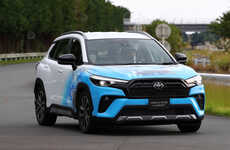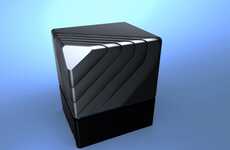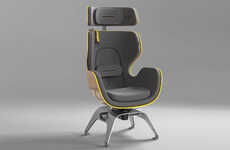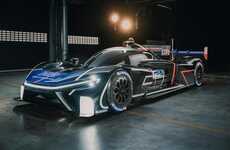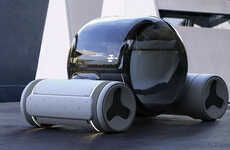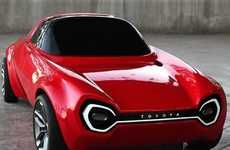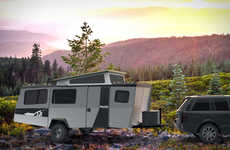
The Toyota Fine-Comfort Ride Has Four Swivel Seats Within
Michael Hemsworth — October 21, 2017 — Autos
References: newsroom.toyota.co.jp & slashgear
The conceptual Toyota Fine-Comfort Ride has been designed with a focus on a premium experience to acknowledge the way that consumers are shifting towards cars that are suitable for long-distance drives.
Vehicle designs are slowly shifting as brands get consumers more comfortable with the idea of autonomous cars, which means more cabin space and enhanced comfort. This is evident with the new concept Toyota seen here that boasts four swivel seats and ample room within to enable reclining.
The Toyota Fine-Comfort Ride uses a fuel cell that is powered by electricity created using hydrogen, which means that the vehicle produces no CO2 emissions when it's being operated. Best of all, the vehicle can be recharged in just three minutes flat to make it ideal for long-distance hauls.
Vehicle designs are slowly shifting as brands get consumers more comfortable with the idea of autonomous cars, which means more cabin space and enhanced comfort. This is evident with the new concept Toyota seen here that boasts four swivel seats and ample room within to enable reclining.
The Toyota Fine-Comfort Ride uses a fuel cell that is powered by electricity created using hydrogen, which means that the vehicle produces no CO2 emissions when it's being operated. Best of all, the vehicle can be recharged in just three minutes flat to make it ideal for long-distance hauls.
Trend Themes
1. Autonomous Vehicles - Disruptive innovation opportunities in this trend include developing advanced self-driving technology and creating more spacious and comfortable cabin designs.
2. Hydrogen Fuel Cells - Disruptive innovation opportunities in this trend include improving the efficiency of hydrogen fuel cells and expanding the infrastructure for hydrogen refueling stations.
3. Fast Charging Technology - Disruptive innovation opportunities in this trend include developing faster and more efficient charging solutions for electric vehicles, reducing charging times significantly.
Industry Implications
1. Automotive Industry - Disruptive innovation opportunities in this industry include integrating autonomous technology into vehicles and exploring alternative fuel sources such as hydrogen.
2. Energy Industry - Disruptive innovation opportunities in this industry include advancing hydrogen fuel cell technology and expanding the infrastructure for hydrogen production and distribution.
3. Technology Industry - Disruptive innovation opportunities in this industry include developing fast-charging solutions and autonomous driving technology that can be integrated into different vehicle models and brands.
6.1
Score
Popularity
Activity
Freshness


